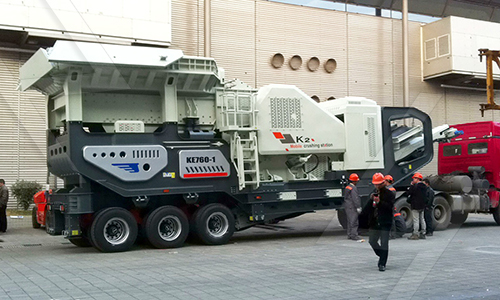Phosphate Mineral Beneficiation: Overview and Methods
Phosphate minerals are essential for producing phosphoric acid and fertilizers. Beneficiation improves the grade and removes impurities to meet industrial requirements. Here’s a concise breakdown:
1. Key Phosphate Minerals
– Apatite (Primary source): Ca₅(PO₄)₃(F,Cl,OH)
– Sedimentary Phosphorites: Found in marine deposits (e.g., Morocco, USA, China).
2. Beneficiation Techniques
# (a) Comminution
– Crushing & Grinding: Reduces ore size for liberation of phosphate grains from gangue (e.g., silica, carbonates).
.jpg) # (b) Physical Separation Methods
# (b) Physical Separation Methods
– Screening/Classification: Separates particles by size (e.g., vibrating screens).
– Attrition Scrubbing: Removes clay coatings on phosphate grains.
– Gravity Separation (Spiral/Washing): Uses density differences (effective for coarse particles).
– Flotation (Most Common Method):
– Anionic Flotation: Silica is removed using fatty acids at pH 9–10.5.
– Cationic Flotation: Carbonates (e.g., dolomite) are floated with amines at acidic pH.
– Reverse Flotation: Silica is floated while phosphate sinks.
# (c) Chemical & Thermal Methods
– Acid Leaching: Dissolves carbonates (e.g., with dilute HCl or H₂SO₄).
– Calcination: Heats ore to ~900°C to remove organic matter/carbonates (used for high-carbonate ores).
# (d) Magnetic/Electrostatic Separation
– Removes iron-bearing minerals or heavy minerals from phosphate concentrates.
3. Challenges & Considerations
– Impurities: High silica, carbonates, or organics require tailored approaches.
– Water Management: Slurry handling and recycling are critical in flotation.
– Environmental Impact: Tailings disposal and reagent use must be controlled.
4. Industrial Applications
– Fertilizers (~90% of use), animal feed, chemicals, and detergents.
 5. Example Flow Sheet (Simplified)
5. Example Flow Sheet (Simplified)
1. Crushing → Grinding → Desliming → Flotation → Dew





Leave a Reply